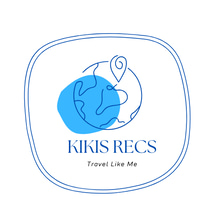
Five Must Have Supplements / Meds
If you're a health nut like me or just curious to see what I usually bring abroad or for long trips read and see my recommended products all found on Amazon
KP
6/26/20254 min read


Vitamin C
Travel is exciting — but it can also take a toll on your body.
Long flights, disrupted sleep schedules, different climates, and exposure to new environments (and new germs) can all weaken your immune system — just when you need it most.
That’s why bringing Vitamin C with you is one of the smartest things you can do before you travel.
Whether in tablet, gummy, or powder form, Vitamin C helps support your immune system, fight off colds, and keep your body resilient against stress and fatigue — two things every traveler experiences, whether you're backpacking across Europe or hopping between time zones for a work trip.
Many travelers overlook this small step, but staying consistent with your Vitamin C can help you avoid getting sick while abroad — and no one wants to spend their dream vacation stuck in bed, missing out on experiences they’ve waited months (or years) for.
Pro tip: Start taking it a few days before your trip and keep it up daily — especially if you're flying or spending time in crowded spaces like airports, trains, or tour groups.
Here is the one I use [ https://amzn.to/4kcaVmi ]
Tylenol/Ibuprofen & Benadryl
When you're far from home, even small health issues can feel overwhelming.
Headaches, muscle aches, fever, unexpected allergies — these things don’t wait for a convenient time. And when you’re in a foreign country or even just a new city, finding the right medication quickly (and understanding the label) isn’t always easy.
That’s why bringing basics like Ibuprofen or Tylenol and Benadryl is something every traveler should do.
Ibuprofen/Tylenol helps with pain, fever, inflammation, and those inevitable post-flight aches or long-walk blisters.
Benadryl can be a lifesaver for unexpected allergic reactions — whether it's a new food, a bug bite, or seasonal changes you didn’t see coming.
Even if you think you won’t need them — these meds are about being prepared. You don’t want to be stuck in a tiny hotel room, battling a headache or hives, wishing you’d packed smarter.
Plus, medications you're used to might not be easily available (or recognizable) abroad, and local pharmacies may not be open when you need them most.
Protein Powder
Travel can throw off your routine — especially when it comes to nutrition.
Whether you're catching early flights, stuck in long transit days, or staying somewhere with limited food options, it’s easy to go hours without a proper meal. And if you rely on protein to stay full, energized, or support your fitness goals — you’ll definitely feel the difference.
That’s why bringing protein powder on your trip is a smart, easy win.
It helps keep your energy stable, curbs unnecessary snacking, and makes sure your body’s getting what it needs — especially if you’re walking a lot, hiking, or missing meals due to time zone changes.
✈️ But let’s be real: bringing a whole tub of protein? Not exactly suitcase-friendly.
The fix: Pre-portion your protein powder into small Ziplock bags or reusable pouches before you leave. That way, you can toss one into your day bag, mix it with water on the go, and keep your nutrition on track without the bulk. Don't forget a shaker bottle!!
Motion sickness aid
Whether it’s winding roads, choppy boat rides, bumpy flights, or long bus rides through the mountains, motion sickness can hit fast and ruin your whole day. One minute you’re enjoying the view, the next you’re trying not to throw up in your tote bag.
That’s why bringing motion sickness patches or Dramamine is a simple but powerful way to protect your trip.
Even if you think you’re not prone to motion sickness, different environments — like boats in open water or high-altitude travel — can surprise you. And once nausea hits, it’s hard to bounce back quickly without help.
💡 Pro tip:
Patches are great for long-lasting, non-drowsy relief (especially for cruises or long travel days).
Dramamine works fast and can also help with dizziness and nausea from anxiety or jet lag.
You may not always be near a pharmacy, and trust us — the time to figure out what works for you is before you’re halfway through a 5-hour bus ride in the Andes.
Emergency Medications .. pls
Some things are too important to leave behind — your health is one of them.
If you live with a serious medical condition like seizures, severe allergies, asthma, or any condition that could require urgent care, packing your emergency medications is not optional. It’s essential.
Whether that means your seizure medication, EpiPen, inhaler, or any doctor-prescribed rescue med, these items should be the very first thing you pack in your carry-on — not your checked luggage. In an emergency, seconds matter — and having what you need within reach could save your life.
When you travel:
Keep emergency meds in their original labeled packaging.
Bring more than you think you’ll need — in case of travel delays or lost bags.
Carry a copy of your prescription and a doctor’s note if needed (especially for injectable meds like an EpiPen).
Inform your travel companions — someone should know where to find your medication and how to help if something happens.
We don't plan for emergencies when we dream about travel — but being prepared is how you protect your freedom to explore, confidently and safely.
